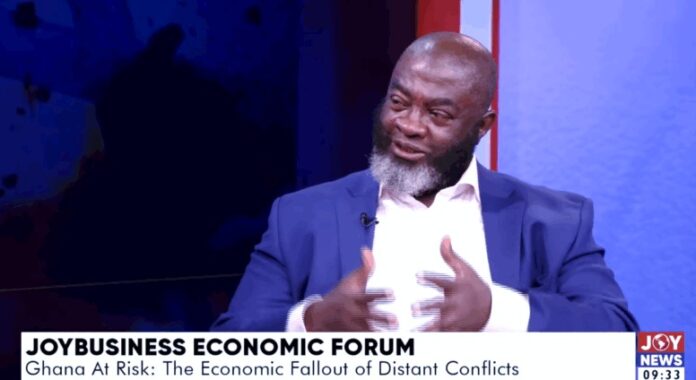Senior Partner at AB & David Africa, David Ofosu-Dorte, has cautioned that the lack of coordination among key state institutions is significantly undermining Ghana’s efforts to build a resilient economy.
Speaking at the Joy Business Economic Forum on Wednesday, June 25, under the theme “Ghana at Risk: The Economic Fallout of Distant Conflict,” Mr. Ofosu-Dorte argued that meaningful economic transformation cannot take place in an environment where ministries and public agencies operate in isolation.
“You have a situation where one ministry decides that this is my area, and another ministry must not come into this area. As a result, that lack of coordination may result in us having a bigger problem,” he stated.
He pointed specifically to the disconnect between monetary and fiscal policy coordination over the years.
“You may do this check—over the last 15 years, examine the harmony between the leadership at the central bank and the Ministry of Finance. A simple lack of internal coordination between monetary policy and fiscal management can actually create larger problems and widen economic divergence unnecessarily.”
According to him, the resilience of the Ghanaian economy hinges critically on institutional synergy and collaboration.
“The economy becomes more resilient if there is harmony between finance and the central bank,” he emphasised.
Mr. Ofosu-Dorte’s remarks were part of a broader conversation on the structural vulnerabilities of Ghana’s economy and the reforms needed to build sustainable resilience.
He called on government and policymakers to prioritise inter-agency collaboration, ensure alignment of economic policies, and embrace strategic, long-term planning.
“Without institutional harmony, we will continue to struggle with fragmented policies that cancel each other out,” he warned.



